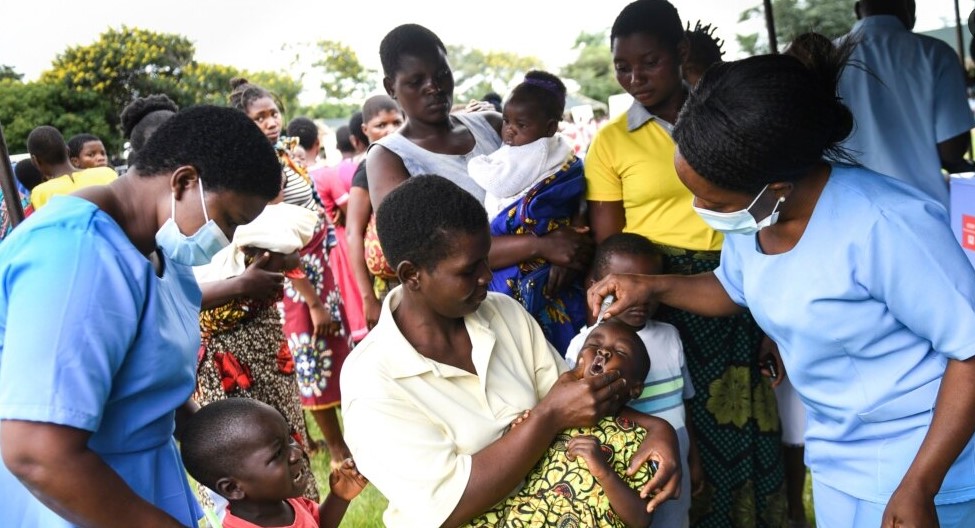Is there a secret to longevity? This health expert says 1,000% yes
In the era of social media, post-COVID, and with mental health at the forefront, a shift is taking […]

After conducting rigorous investigations, the independent Polio Outbreak Response Assessment Team (OBRA) has recommended that the wild poliovirus type 1 (WPV1) outbreak in Malawi and Mozambique be closed. This is an important milestone in the African polio eradication campaign, according to the United Nations International Children’s Emergency Fund (UNICEF).
Background of the outbreak
The last WPV1 case in the African Region, attributed to a strain circulating in Pakistan, was reported in Mozambique’s Tete Province in August 2022. A total of nine cases were found in Mozambique and neighbouring Malawi, where the epidemic was notified in February 2022. In response, more than 50 million children in southern Africa have been immunised against the virus.
Rigorous assessments and findings
The OBRA team’s thorough examination, which included two in-depth field reviews and additional data analysis, concluded that there is no evidence of current wild polio transmission. The assessment looked at the quality of the outbreak response, which included population immunity, supplementary immunisation campaigns, routine immunisation coverage, surveillance systems, vaccine management procedures, and community engagement.
Collaborative effort and commitment
The outbreak was successfully contained because of the unshakable commitment and coordinated efforts of African governments, health professionals, communities, and Global Polio Eradication Initiative (GPEI) partners, including Rotarians. Both countries effectively controlled the virus, protecting the health of their children, through rigorous surveillance, high-quality vaccination efforts, and increased community engagement.
Strategic national prevention plans
National prevention measures have been implemented in Malawi and Mozambique, as well as in Tanzanian, Zimbabwean, and Zambian border districts, thanks to GPEI’s excellent technical assistance. Over 100 million vaccination doses have been provided in high-risk locations. The approach called for precise micro-planning, synchronisation of vaccination plans across five countries, and monitoring vaccination efforts to ensure that all eligible children in cross-border areas received vaccinations.
Recognition of efforts
Etleva Kadilli, UNICEF Regional Director for Eastern and Southern Africa, commended the determination and strong collaboration between governments and health workers. “The official closure of the outbreak is a success due to unfaltering determination and strong collaboration between the governments of Mozambique, Malawi, and neighbouring countries, as well as all partners and health workers.”
Enhanced polio surveillance
Over the last two years, 15 new wastewater surveillance stations have been set up in impacted nations to improve polio surveillance. These sites are crucial for detecting silent circulating poliovirus in wastewater, allowing for rapid confirmation and response to poliovirus presence.
Technological and Data Advances
Efforts to protect children in high-risk areas have been strengthened through improved monitoring and data management. WHO’s Geographic Statistics Systems (GIS) Centre analysed spatial data to give real-time coverage statistics, hence increasing vaccine coverage by discovering missing communities.
Global praise and future commitments
Dr. Chris Elias, president of Global Development for the Bill & Melinda Gates Foundation, praised the region’s efforts. “Malawi, Mozambique, and the broader Southern African region are paving the way for better vaccination campaigns and disease tracking systems. Commitments like this will help us attain a world free of all polioviruses.
The Path Forward Health specialists, OBRA team, and GPEI coordinators emphasised the need for improved polio surveillance, community participation, and rapid outbreak response. Rapid deployment of experts and other field responders was critical in combating the virus, demonstrating that polio outbreaks can be contained via devoted and coordinated efforts.

In the era of social media, post-COVID, and with mental health at the forefront, a shift is taking […]

With its fast speeds and revolutionary potential, 5G stands out as a noteworthy milestone in the field of […]